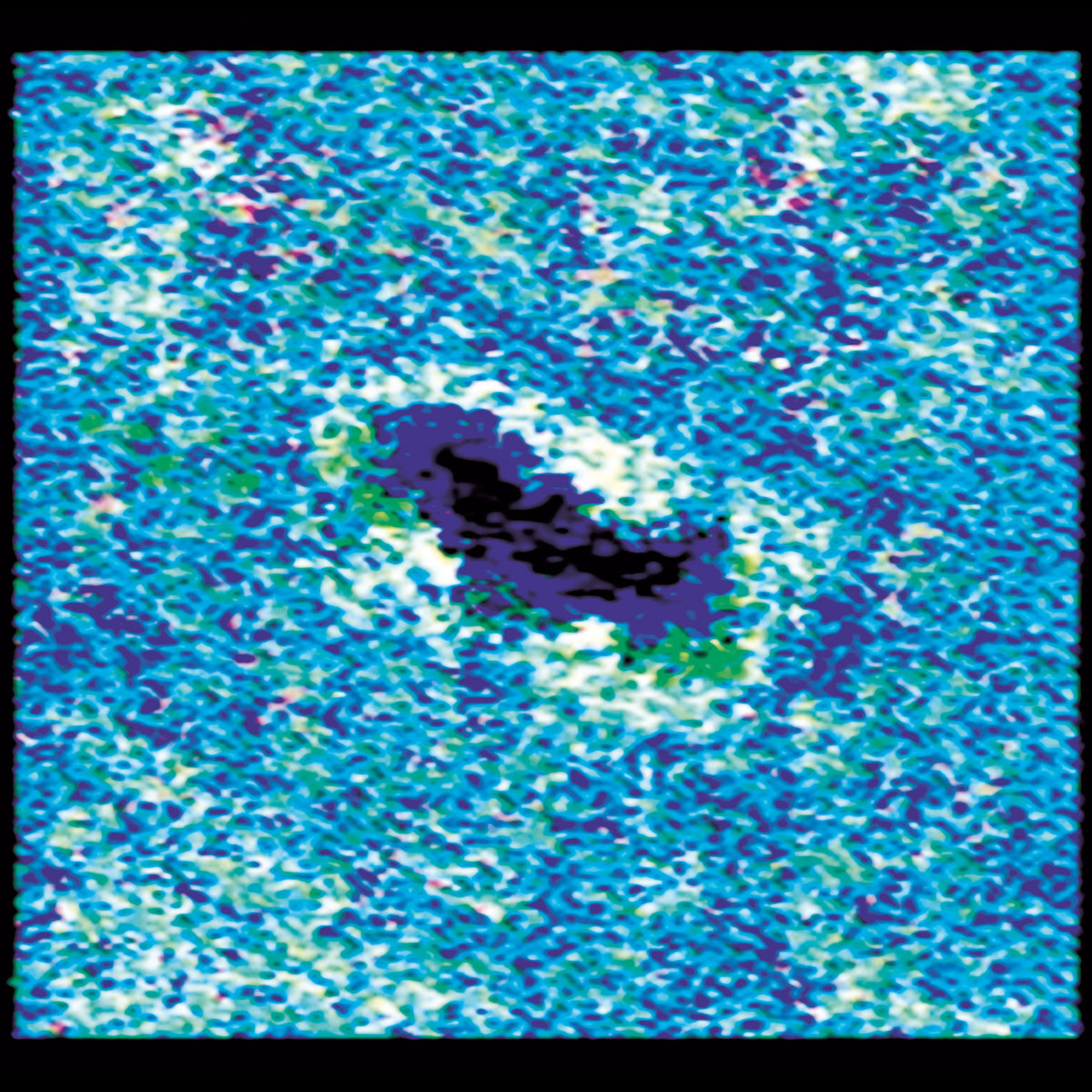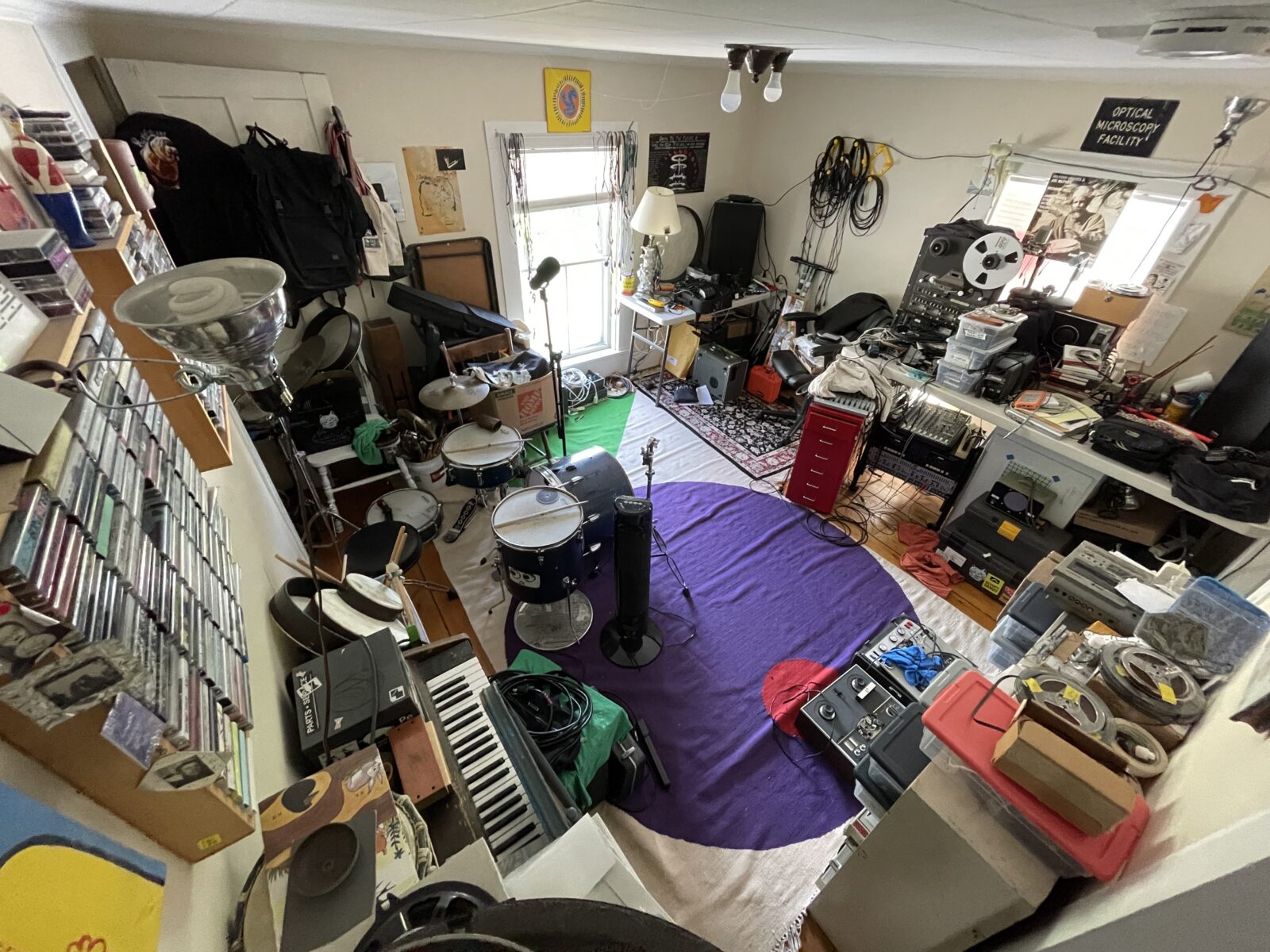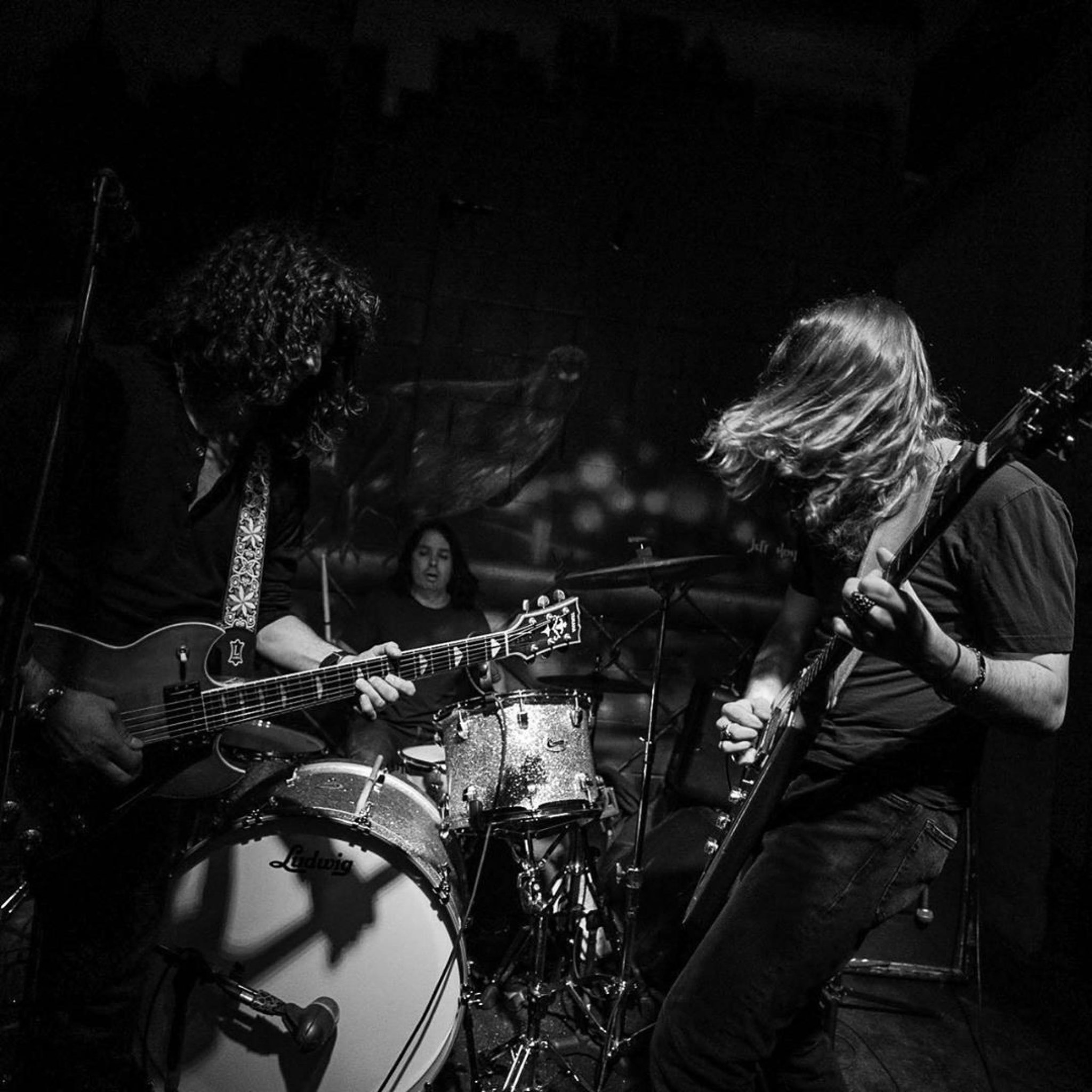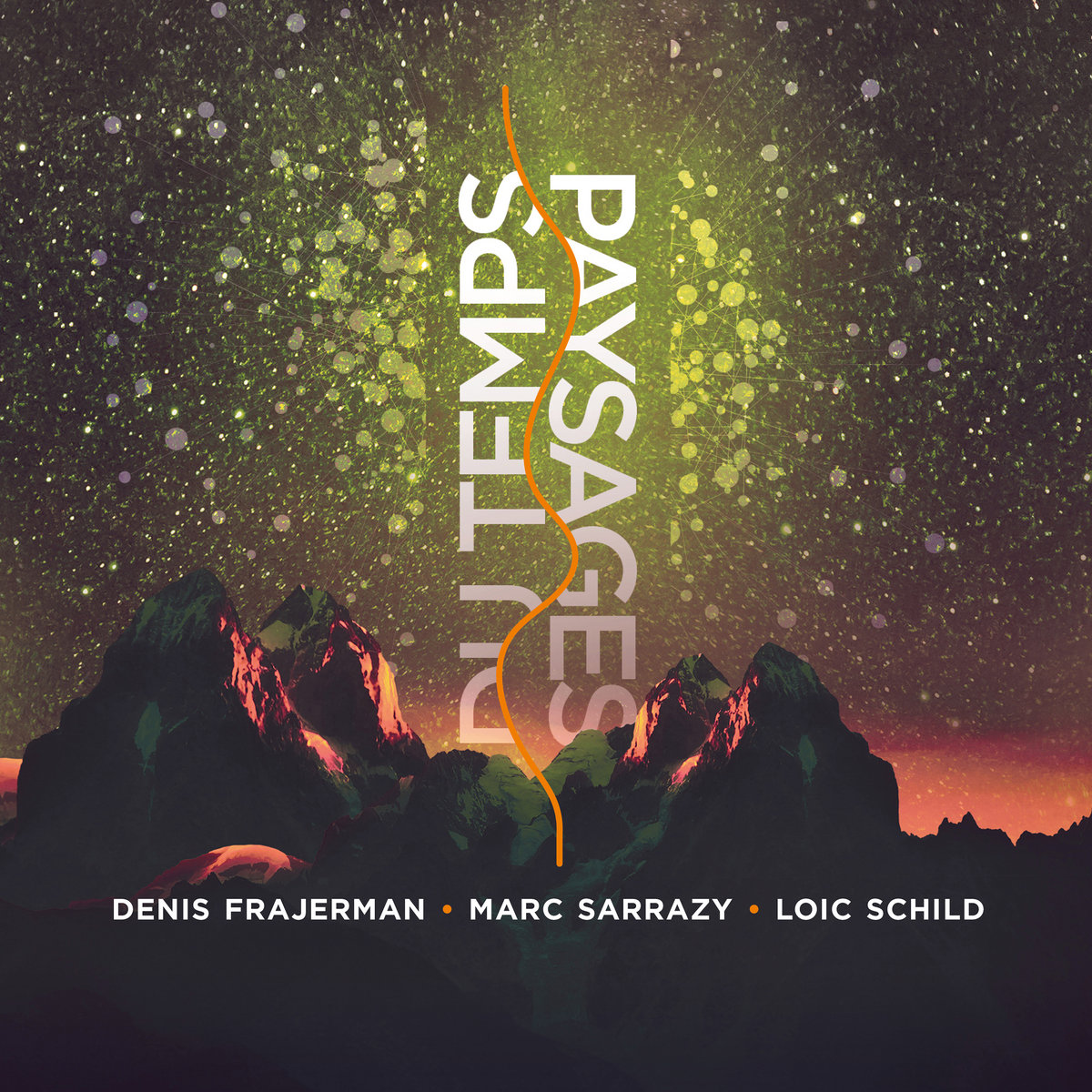Bromp Treb
‘Bad Eagle Over Food City’ by Bromp Trep is a collection of failed portraits. It’s a mess, but a beautiful mess.
“Push things around into ways that make sense to me”
I really enjoyed listening to ‘Bald Eagle’. It was fun. It sounds like a mess, but like a beautiful mess. Is that one of your goals when you make your music: to make beautiful ugly music? To dance on this thin line between order and chaos?
Neil “Cloaca” Young: Thanks, I’m glad you dug the sounds and grokked it hard. It’s funny, I don’t usually start with goals and concepts when I’m making music/sound and come to think of it, a lot of my film practice, too much either. I like to just “do stuff” – enact or activate, push things around into ways that make sense to me. I’m seeking sounds that are interesting to me first and foremost, searching for and generating them almost exclusively from improvising, responding, reflecting and just playing, playing, playing. I like sounds and actions that are organic and behave like accidents, so I guess I do relish in chaos a bit, but I don’t ever start with any self-conscious thought like, “I will now make ugly or beautiful music.” In filmmaking, I’m very curious about the edge of the frame, what’s happening off camera and the ways that the certain kinds of clumsiness of before and after “the take” are recorded. It’s funny, I’m often distracted and annoyed by handheld or seductively flowing camera work, yet I love when the setting up and framing up of a shot is documented or when a tripod is bumped or shaken. Physical comedy, sight gags, bad puns. Anyway, I’m happy that you find it a mess! I do too!

One of the many starting points aesthetically for this record was playing instruments that I do not know how to play, learning as I went and recording layers of these “badly-played” instruments as alien textures to manipulate. My partner and I stumbled onto writings by Julietta Singh, at that time both No Archive Will Restore You and Unthinking Mastery and so many of her ideas resonated with me. I try to honor and appreciate expertise, but I’ve been fundamentally uncomfortable with mastery as the end goal. Full control over something/someone/someplace or some tool just seems as sad and unfulfilling to me as does a competitive mindset. That works for some folks, but I’m motivated by curiosity, exchange and collaboration. Another touchstone inspiration of course is Portsmouth Sinfonia – less for the kitsch and more for the idea of taking yourself out of the comfort zone, playing the instrument that you don’t know how to play and still making beautiful and unexpected sounds from that place of discomfort and awkwardness. This past summer, after the record was long done, and as lockdown was loosening, I started a regular weekly outdoor “breath-based” instruments open session by the river, inviting anyone to join me at a specific location and time. Tooty is the project, I do it twice a week now – with no goal other than being, in a place outside, making/listening. Sometimes I’m alone, other times it’s like 10 of us. Sometimes it’s snowing and punishingly cold other times, pouring rain, or hot humid sun and mosquitoes. It’s great!
Why do you call these recordings “failed portraits”?
This record is very different from others in that I actually set out to make sonic sketches of particular places. Many of the pieces are attempting to be-about or coming-from or speaking-to some type of essence of a particular place. No matter how hard I or anyone can try, it is an impossible task.
Is this album a tribute to where you live?
Most definitely! And ironically, as of almost a week ago, my partner and I have decided to make a huge move across the country and relocate ourselves to Southern California. Both of us grew up around here and have been here most of our lives, but my partner got an amazing job offer and it seems like the right time in our lives to try something radically new and different to us.
The album is recorded with tape machines. Why do you prefer the analog way of doing things?
I did indeed record the whole thing on like 5-6 tape machines total. A friend repaired a couple of my machines and I’ve been working with tape ever since I started making noises in the 90’s. The record is mostly assembled from three 4-track tape machines: two cassettes and one 1/4″ open reel guy … There’s a lot of other smaller 2 track machines playing open reel and cassette loops and stuff. I got really obsessed with how fantastic three badly-played violins sound bounced to one track and then compounding that! I stopped using effects, I fiddled with mic placement, I got a compressor and eq and just kept recording. I also got into reverbs and delays smudging the tapes even more. I guess I just love the physicality of all of it: the failed take, rewinding all of the machines to the right spot and then orchestrating the playbacks, faders and delays… As the lockdown started, it made further sense to keep working this way, staying off the damn screens and knowing that none of these machines had Bluetooth or any automation.
You recorded the album between 2019 and 2021, so in about three years time. What does working on an album for about 1000 days mean, for you? Do you work on it daily? Do you think about music daily?
Haha, I never thought about it this way, but yeah, if I was working on the record daily for over a thousand days it would be quite a different record! I work a 40+ hour / week job in a library at a small experimental college, so I was definitely not working on it nor thinking about it all of that time. Sometime in 2018 or 2019 I took the absurd photo of the bald eagle circling over the grocery store parking lot – it was so sadly blurry and incoherent, but I said those words to myself “Bald Eagle Over Food City” and knew right then that I needed to make a record or something about that and this place.
Early in 2019, while I was on tour in Texas I got the news that the aforementioned college that I work at (and attended as a student) was going to close or be sold off and so there was a lot of rapid and unsettling change in store for college community that I so-stably worked-at for so many years. So many people around me that I worked with for so long were laid off or left and the college became a ghost town. I was alone and now had four offices. Also, my partner had taken a job and was living halfway across the country and then as we all know, going into the following year, the plague hit. All of these wider shifts meant that I was spending more time by myself and digging deep into where I live. The college is like 22 miles south of where I live, and when the lockdown happened, I was able to spend even more time home, feeling confused on the screens, riding my bike, gardening and goofing off with friends here. The album is definitely not about the pandemic, but the conditions made me work more diligently and regularly on it than if things were “normal”. Doing the usual: working, playing shows, working, going to screenings, working, et cetera was no longer happening.
I have been thinking about the music and what I did for this record a lot more than I usually do – part of that is because I decided that I should try to frame up and contextualize my thoughts, feelings, processes a lot more than I usually do. Also because I’ve been trying to learn more and be more thoughtful of my presence in the world as a white cis dude who’s been living on what is basically stolen, genocided-and-slave-built land. As this silly record is now plopping-out, I want to be clear that so many of these “failed portraits” are imbued with very specific references to legacies of white supremacy, colonialism and capitalism and my own personal navigation through this gnarly thicket of ethical quandaries. This place is still named after the guy who committed a massacre here 346 years ago.
You play and record at home. Is this important to you, to be able to work from home? What does your home studio look like? What are your studio habits?
We have lived in this house for 16 years and I’ve lived in this region, basically two different river valleys and the hills between, my whole life. I don’t have too much experience of the luxury of posting up in many recording studios or otherwise, but many of my best projects and collaborations have occurred in spaces that have been lived and played-in for a few months or years, so creating a sense of “home” or accumulating enough junk in a space is important to me. I don’t like piles and clutter, but when I get going, I often don’t waste too much time worrying about keeping any kind of organized or minimalist appearance. Home is crazy piles. Without any adjusting, not much has been going on in there lately.
How much of the music that you play do you record? How much of what you record do you release?
Mmmm, great question! There’s probably like another third or so of unused material … it’s not that great. But a better ratio than I usually do, which is hours upon hours of garbage that gets whittled down to something presentable. I did do thousands of takes of mixdowns that felt like over half of the “performing” in the record … There’s hours of playing and recording the layers but then there’s just playing the tapes back and mixing … ahhhh.
Joeri Bruyninckx
Bromp Treb Official Website / Facebook / Instagram / SoundCloud / Bandcamp




